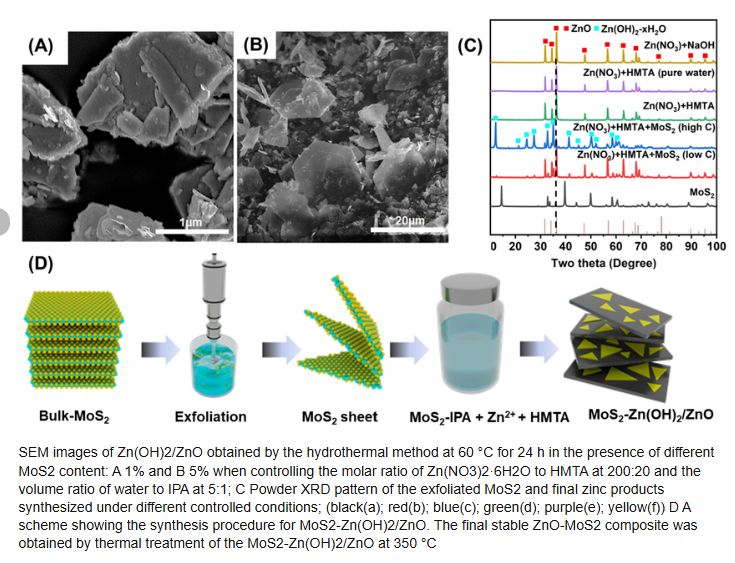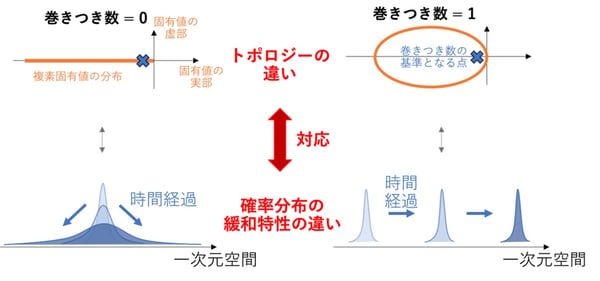2024-01-23 パシフィック・ノースウェスト国立研究所(PNNL)
◆このヘテロ構造は、MoS2の単一層が多層ZnOにエピタキシャリーに層状に配置されるように作られ、正負の電荷を異なる材料上に局在させ、物理的な電荷の分離をもたらします。これらのヘテロ構造は、個別または物理的に混合されたZnOおよびMoS2材料よりも50%効率的な光触媒となります。この研究は、次世代の太陽電池やクリーンエネルギー応用に必要なスケーラブルで精密な合成手法の発展に寄与しています。
<関連情報>
- https://www.pnnl.gov/publications/enhancing-photocatalytic-efficiency-using-charge-carrier-separation-layered
- https://www.researchgate.net/publication/376310499
ローダミンBの可視光分解を促進する反応性テンプレート法による二次元酸化亜鉛(ZnO)/二硫化モリブデン(MoS2)ヘテロ構造の溶液合成 Solution synthesis of two-dimensional zinc oxide (ZnO)/molybdenum disulfide (MoS2) heterostructure through reactive templating for enhanced visible-light degradation of rhodamine B
Lili Liu,Ping Chen,Xin Zhang,Libor Kovarik
Advanced Composites and Hybrid Materials Published:7 December 2023
DOI:http://dx.doi.org/10.1007/s42114-023-00780-8
Abstract and Figures
Numerous inorganic materials have been identified as potential candidates for high-performance photocatalysts. However, their solar-to-energy conversion efficiencies still fail to meet commercial requirements. The main hurdle is the rapid recombination of photoexcited electrons and holes in single-phase materials. A viable predicted approach to suppress charge recombination is coupling two materials to form a two-dimensional (2D) heterostructure that physically separates photoinduced electrons and holes in different layers. In this work, the heterostructure-based paradigm was tested, and a scalable solution synthesis of epitaxial ZnO-MoS2 heterostructure was developed. A 2D ZnO-MoS2 heterostructure was synthesized under hydrothermal conditions by stabilizing intermediate Zn-hydroxide states on a functionalized MoS2 surface. Detailed characterization showed the formation of multilayer heterostructure with MoS2 flakes intercalated between large size ZnO plates. The performance of this heterostructure was evaluated using photocatalytic degradation of rhodamine B. A degradation efficiency of 70% was measured within 90 min of visible-light irradiation, almost doubling the efficiency of the corresponding single-phase materials or their physical mixtures. Graphical Abstract Epitaxial two-dimensional heterostructures of metal oxide and transition metal dichalcogenide, which physically separates photo-induced electrons and holes in different layers, are synthesized using novel and highly scalable solution-based approach. The heterostructures demonstrate an almost 50% enhancement in photocatalytic efficiency compared to the corresponding single-phase materials or their mixtures due to the suppression of charge recombination.




